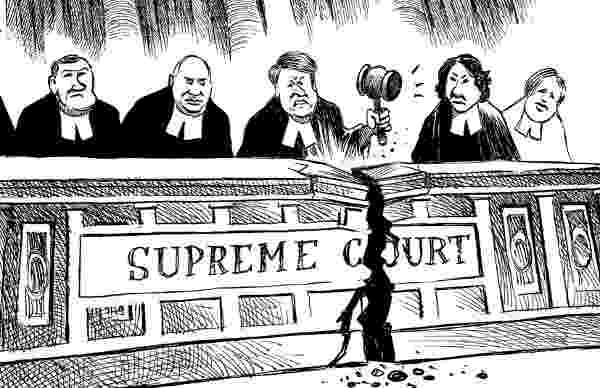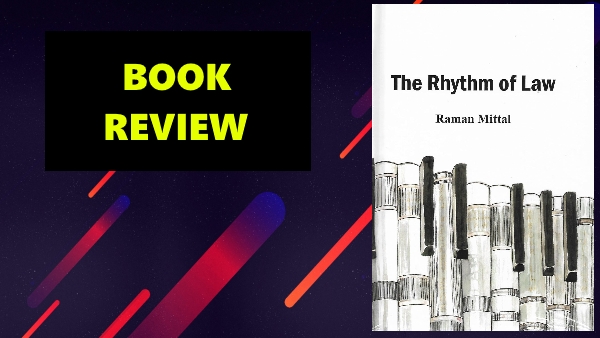Iftikhar Ahmed v. Syed Meharban Ali case dealt with whether the earlier decision of the court regarding the title of the property in question would operate as res judicata between the parties who were co-plaintiffs in the earlier suit.
Appeal before the Supreme Court through Special Leave Petition under Article 136 of the Constitution. Leave was granted.
Facts of the case:
- There was a dispute between Ishtiaq Ahmed, Kaniz Fatima, and Meharban Ali (Co-plaintiffs) on one hand and the mortgagee on the other hand.
- The co-plaintiff claimed the disputed property. In that suit, it was decided that only Ishtiaq Ahmed had a title to the properties and the other two (Kaniz Fatima, and Meharban Ali) had no title. The question of title which was in dispute was conclusively determined by a competent court.
- In the latter suit, the dispute was between Ishtiaq Ahmed on the one hand and Kaniz Fatima, and Meharban Ali on the other hand regarding the same property. The matter was referred to the arbitrator.
- The first arbitrator and the District Judge held that the earlier decision would operate as res judicata: the second arbitrator and the High Court held it would not operate as res judicata. The matter came to the Supreme Court through SLP.
Legal Issue:
Whether the earlier decision of the court regarding the title of the property in question would operate as res judicata between the parties who were co-plaintiffs in the earlier suit?
The decision of the Supreme Court:
- The SC ruled that if the following 4 principles were satisfied, then it would operate as res judicata:
- There must be a conflict of interest between the parties.
- It is necessary to decide that conflict in order to give relief and determine the issue in the case.
- That such a conflict has been conclusively determined.
- The Co-defendants were necessary or proper parties in the former suit.
- The SC held that since the four conditions were satisfied in the case and thus the principle of res judicata has to operate.
Important paragraphs from the judgment:
- Now it is settled by numerous decisions that, for a judgment to operate as res judicata between or among co-defendants, it is necessary to establish that:
- There was a conflict of interest between co-defendants;
- That it was necessary to decide the conflict in order to give the relief which the plaintiff claimed in the suit; and
- That the Court actually decided the question.
- In Chandu Lal v. Khalilur Rahman [AIR 1950 PC 17], Lord Simonds said: It may be added that the doctrine may apply even though the party, against whom it is sought to enforce it, did not in the previous suit think fit to enter an appearance and contest the question. But to this, the qualification must be added that, if such a party is to be bound by a previous judgment, it must be proved clearly that he had or must be deemed to have had notice that the relevant question was in issue and would have to be decided.
- We see no reason why a previous decision should not operate as res judicata between co-plaintiffs if all these conditions are mutatis mutandis satisfied. In considering any question of res judicata we have to bear in mind the statement of the Board in Sheoparsan Singh v. Ramnandan Prasad Narayan Singh [AIR 1916 PC 78] that the rule of res judicata “while founded on ancient precedent is dictated by a wisdom which is for all time” and that the application of the rule by the Courts “should be influenced by no technical considerations of form, but by the matter of substance within the limits allowed by law.”
- The raison d’être (noun, the most important reason or purpose for someone or something’s existence; ratio) of the rule is to confer finality on decisions arrived at by competent Courts between interested parties after a genuine contest and to allow persons who had deliberately chosen a position to reprobate it and to blow hot now when they were blowing cold before would be to ignore the whole foundation of the rule [Ram Bhaj v. Ahmed Said Akhtar Khan, AIR 1938 Lah 571].
- There was no finding by the arbitrator that by adverse possession, the two defendants had gained title to the properties at any point in time. The question which was referred to the arbitrator was the dispute between the parties as regards the title to the properties. It would be an error of law apparent on the face of the award if it were to say that the judgment of the High Court would not operate as res judicata. The District Judge was, therefore, right in holding that the award was vitiated by an error of law apparent on its face in that it was based on the proposition that the judgment of the High Court would not operate as res judicata on the question of title to the properties.
- We set aside the order of the High Court and allow the appeal. In the circumstances, we think it would be an empty formality to restore the decision of the District Judge and remit the case again to the arbitrator. We restore the award dated March 30, 1959, passed by Mr. K.C. Govil, the first arbitrator.
Found the Iftikhar Ahmed v. Syed Meharban Ali case summary useful? We have a bunch of useful topics from the code of civil procedure that will help you in your preparation here >>> CODE OF CIVIL PROCEDURE.
Check out our YouTube Channel for free legal videos >>> LAW PLANET YT






